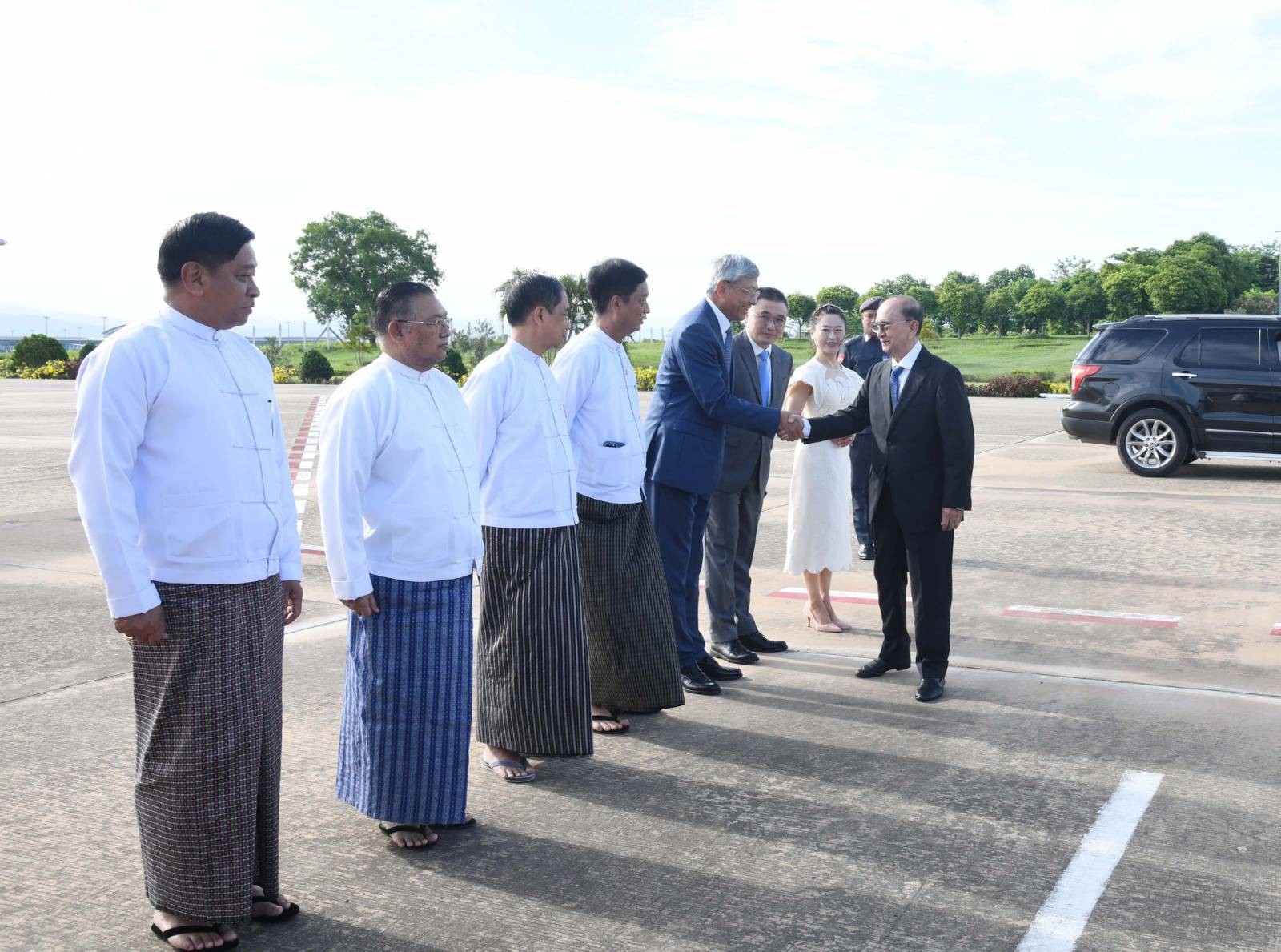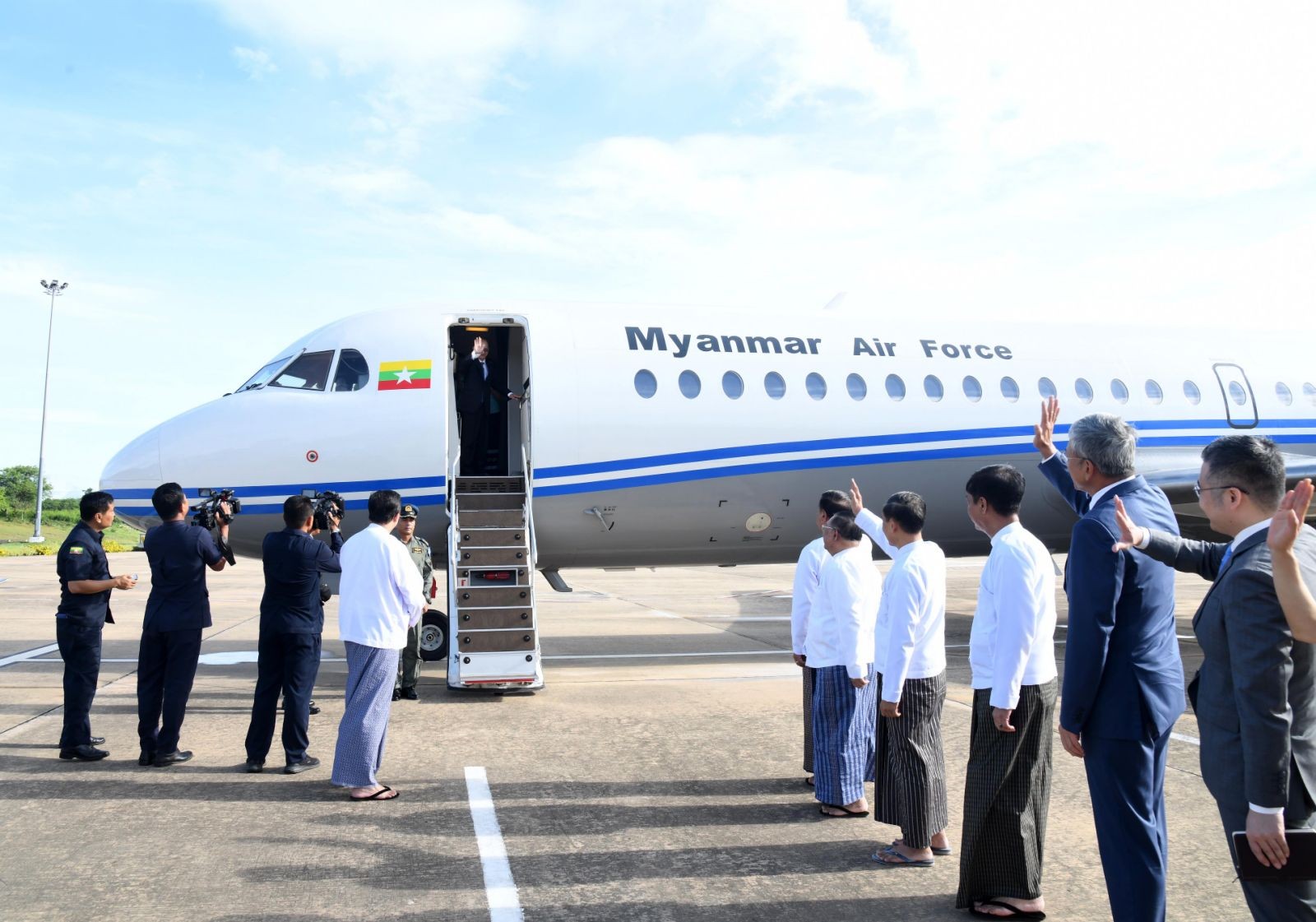CNI News
June 28, 2024
Political and military analysts are reviewing and discussing if former president U Thein Sein's visit to China had an impact on the Myanmar political conflict.
Former U Thein Sein's visit to China came when the battles resumed in northern Shan State and his visit might impact on the Haigen Agreement between the Myanmar Tatmadaw and the Three Brotherhood alliance (TNLA-AA-MNDAA) to an extent, said some people.
U Thein Sein's visit was kind of searching for the relation path again, Col.Khun Okkar, patron of the Pa-O National Liberation Organization, told CNI News.
“When U Thein Sein goes to China to attend a conference marking the 70th anniversary of the Five Principles of Peaceful Coexistence that were laid down at the Bangung Conference, he might discuss other issues with the Chinese leaders. In my opinion, agreements cannot be reached in one go. But building the relation path again, it's searching for a way to make things stable kind of." he said.

The Bandung Conference that was held in Bandung City, Indonesia in April, 1955 was attended by the leaders of 29 countries from Asia and Africa and the Five Principles of Peaceful Coexistence agreed by China, India and Myanmar was approved by the leaders.
he 70th anniversary of the Five Principles of Peaceful Coexistence was attended by former President U Thein Sein, U Thant Kyaw, chairman of Strategy and International Study Institute, U Tin Oo, chairman of the Myanmar - China Friendship Association, and Daw Than Than Nu, chairperson of the U Nu-Daw Mya Yi Foundation.
During the visit, U Thein Sein and party could discuss domestic peace, politics and the China-Myanmar border trade, some people reviewed.
U Thein Sein's attendance at the event was not related to resurgence of battles in northern Shan State and the Haigen Agreement arose by reason of domestic conflict, U Than Soe Naing, a Myanmar political commentator, told CNI News.

" The Five Principles of Peaceful Coexistence mutual includes non-interference in each other's internal affairs and the military council likes the principles. When China invited U Thein Sein, he went there. But the Haigen meeting arose because of the military and political conflicts occuring within Myanmar. Moreover, U Thein Sein didn't go there on behalf of the government. The time when U Thein Sein went to China coincides with the time when the battles resumed in northern Shan State after the Haigen Agreement was broken." said U Than Soe Naing.
While the battles were severely breaking out in northern Shan State in the end of last year, because of China's mediation, the Haigen Agreement was reached between the Myanmar Tatmadaw and the Three Brotherhood Alliance (TNLA-MNDAA-AA) to cease fire.
The Myanmar Tatmadaw and the TNLA accused each other that the Haigen Agreement was violated after which the battles resumed on 25th June.




